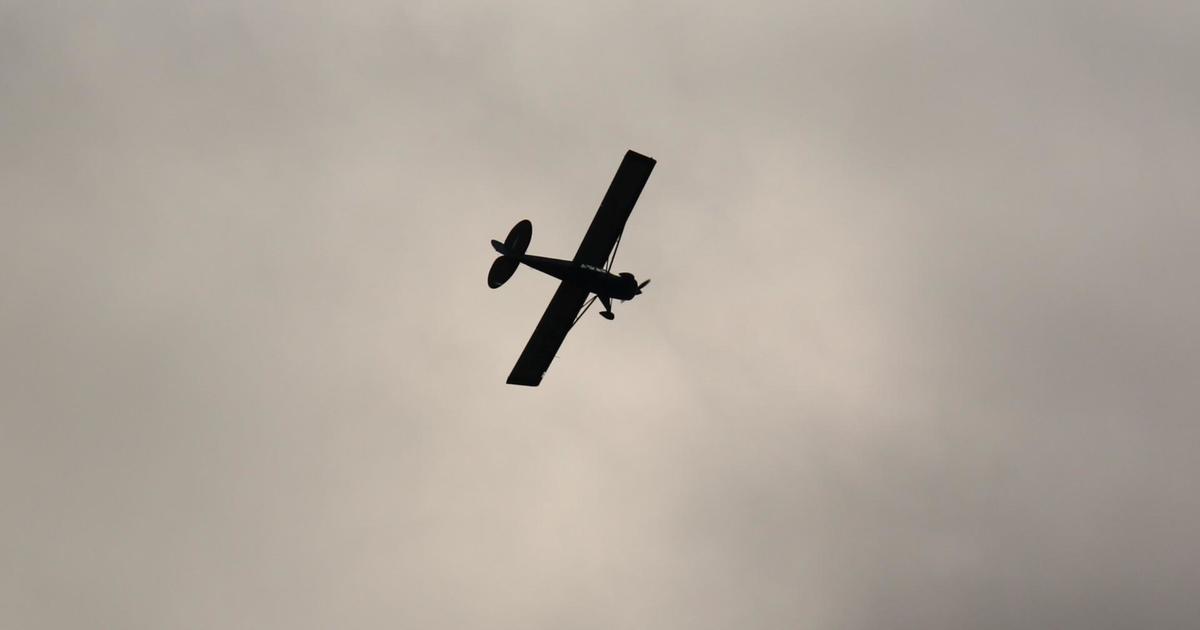Good Question: Why Do We Turn Off Electronics On Takeoff?
By Jason DeRusha, WCCO-TV
MINNEAPOLIS (WCCO) -- Before takeoff and landing, we know it is coming: "ladies and gentleman, please turn off all electronic devices." However, for many of us, it's hard to believe that an iPod or a Kindle could really affect an airplane. So, why do we have to turn off electronics on take-off and landing?
Surprisingly, the ban on personal electronic devices (PEDs) is not mandated by the Federal Aviation Administration (FAA).
"The regulations also let airlines independently determine if passengers can use PEDs not specifically mentioned by the rules," according to the FAA fact sheet on in-flight electronics.
"The airlines simply don't have the manpower, the money, the time, or interest to find out if it's safe for your cell phone … to be operating during the critical portion of flight," said Kathleen Bangs, an aviation expert and former commercial airline pilot.
With all the new electronics coming out, it would be virtually impossible to test all of them.
"Virtually all microprocessors radiate signals over a wide frequency range and, in fact, part of the required governmental testing is to determine the level of these emissions over the frequency range generated by the device," said F.M. Evans, a former FCC employee based in St. Paul.
"In view of the number of devices in use (including legitimate transmitters), the percentage causing problems is microscopic," according to Evans.
The regulations date to 1961, when transistor radios started being carried onto airline flights.
"Back in the 60s, there was a case where they thought it interfered with a flight over New York," said Bangs.
The fear was that the personal electronics could emit radiation and interfere with the ground-based radar system. Now, planes use satellite navigation systems, or GPS.
The fear isn't that a couple iPods could bring down a plane, rather, "it's during the critical phase, when a pilot, especially in bad weather, is relying on sensitive navigation equipment, if something was to happen with your equipment," said Bangs.
There have been several cases where pilots or investigators thought something went wrong because of a cell phone being left on, or a laptop computer, but investigators have never been able to recreate the problem.
"There have been cases when Boeing has gone ahead and bought the laptop or purchased the cell phone from passengers, whose devices were thought to be suspect, and they run them through all these rigorous tests, and they can't find anything," said Bangs.
The FAA did ask the RTCA to research this issue, and they found that the risk of something going wrong on an instrument-landing was close to 1 in a million. But, according to the FAA, "the final RTCA report said there is insufficient information to support a wholesale change in policies that restrict use of PEDs."
Because the FAA has essentially ceded control over this issue to the airlines, it's not in the airlines best interest to make a change, according to Bangs.
"What airline wants responsibility of having there be an accident, having them not be able to find any other cause, no pilot error, no mechanical error, and it traces back to" an electronic device, she said.
"The FAA has issued guidance to airlines letting passengers turn on most PEDs after the plane reaches 10,000 feet. At a lower altitude, any potential interference could be more of a safety hazard as the cockpit crew focuses on critical arrival and departure duties," according to the agency.
The Federal Communications Commission considered removing its ban on in-flight cell phone use in 2004, but withdrew that proposal based on massive negative feedback.
Either way, cell phone handsets would still be subject to testing and approval by the FAA and/or the airlines.
So, why can we use our cell phones and devices after we land, and while we're on the runway, but not while we taxi before we take off?
According to Bangs, that has more to do with the workflow of the crew. Before takeoff, they make one announcement telling people to buckle up, turn off devices, and prepare to takeoff. After landing, there's no reason to worry about the navigation systems, so if devices should happen to interfere, there's no safety risk.



